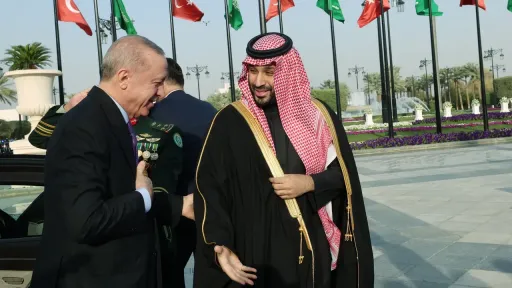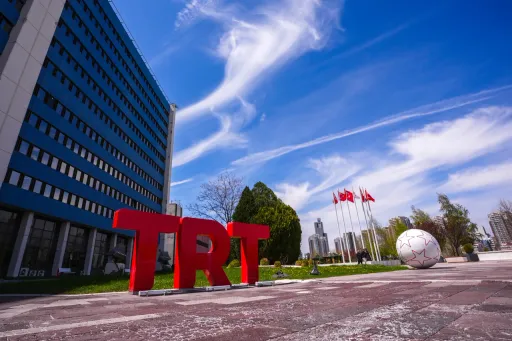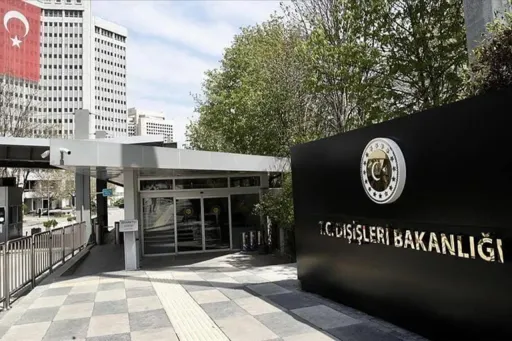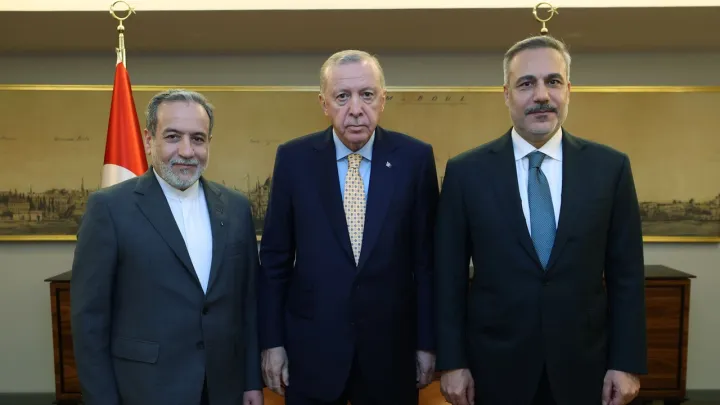Sport
Dollar
43,5232
-0.1 %Euro
51,5160
0.06 %Gram Gold
6.943,3800
0.48 %Quarter Gold
12.309,5300
0 %Silver
123,3800
0.75 %Türkiye will continue working to promote a culture of cooperation between the two sides on the island, says the Turkish Foreign Ministry spokesperson.
Türkiye will maintain its sincere efforts to foster a spirit of collaboration between the two communities on the island of Cyprus, the Turkish Foreign Ministry said on Friday.
Speaking at an informal meeting on Cyprus held at UN headquarters in New York on Wednesday and Thursday, ministry spokesperson Oncu Keceli has said: “Türkiye will continue our efforts in good faith and close consultation with the Turkish Cypriot side to promote a culture of cooperation between the two sides on the island.”
“Türkiye took part in the New York meeting, as it did in the Geneva meeting in March, in close coordination and consultation with the Turkish Republic of Northern Cyprus (TRNC) side, to take meaningful steps to promote good neighbourly relations between the two states on the island,” he stressed.
During the Geneva meeting, areas where cooperation could be developed for the benefit of both communities were discussed, and agreement was reached on six key topics.
In the New York meeting, developments in these areas over the past four months were reviewed, he said.
Progress was made in several areas, he said, including the establishment of a technical committee on youth, restoration of cemeteries, and issues related to the environment and climate change.
He also underlined that the sides are very close to reaching an agreement that would allow demining efforts to begin, with only a few technical details remaining to be finalised.
But no progress was made on two other topics from March: the opening of four new border crossings and electricity production from solar energy in the buffer zone between the two countries, despite the UN's full efforts and the constructive approach of the Turkish side.
“Although the Turkish side accepted the UN's compromise proposal on border crossings with a goodwill approach, the Greek Cypriot side constantly introduced new conditions at every stage, failed to keep its word, and insisted on reviving previously rejected proposals. This made progress impossible,” Keceli said.
“Likewise, the Greek Cypriot side’s uncompromising stance has been the sole obstacle to progress in the area of solar energy production in the buffer zone,” Keceli noted.
He said negotiations on these two topics would continue with the support of UN Secretary-General Antonio Guterres’s Cyprus envoy, Maria Angela Holguin Cuellar.
Keceli also said that during the New York meeting, Turkish Republic of Northern Cyprus (TRNC) President Ersin Tatar and Greek Cypriot Administration leader Nikos Christodoulides agreed to work on four new areas of cooperation: establishing a consultative mechanism for civil society engagement, exchange of cultural artefacts, air quality management, and tackling microplastic pollution.
Talks on these topics will also be held on the island in the coming days, he said.
“Reaching consensus on these four new areas of cooperation helps lay the groundwork for the kind of collaboration that the two neighbouring states on the island will pursue in a post-settlement scenario,” he added.
“Regrettably, the Greek Cypriot side’s intransigence continues to block progress in areas that would have a direct and positive impact on the daily lives of both communities, such as the opening of new border crossings,” Keceli underlined.
“This mentality demonstrates why a solution outside Tatar’s two-state vision is no longer viable on the Cyprus issue,” he added.
Cyprus has been mired in a decades-long dispute between Greek Cypriots and Turkish Cypriots, despite a series of diplomatic efforts by the UN to achieve a comprehensive settlement.
Ethnic attacks starting in the early 1960s forced Turkish Cypriots to withdraw into enclaves for their safety.
In 1974, a Greek Cypriot coup aimed at Greece’s annexation of the island led to Türkiye’s military intervention as a guarantor power to protect Turkish Cypriots from persecution and violence. As a result, the TRNC was founded in 1983.
It has seen an on-and-off peace process in recent years, including a failed 2017 initiative in Switzerland under the auspices of guarantor countries Türkiye, Greece, and the UK.
The Greek Cypriot Administration entered the EU in 2004, the same year that Greek Cypriots single-handedly blocked a UN plan to end the longstanding dispute.
Comments
No comments Yet




















Comment